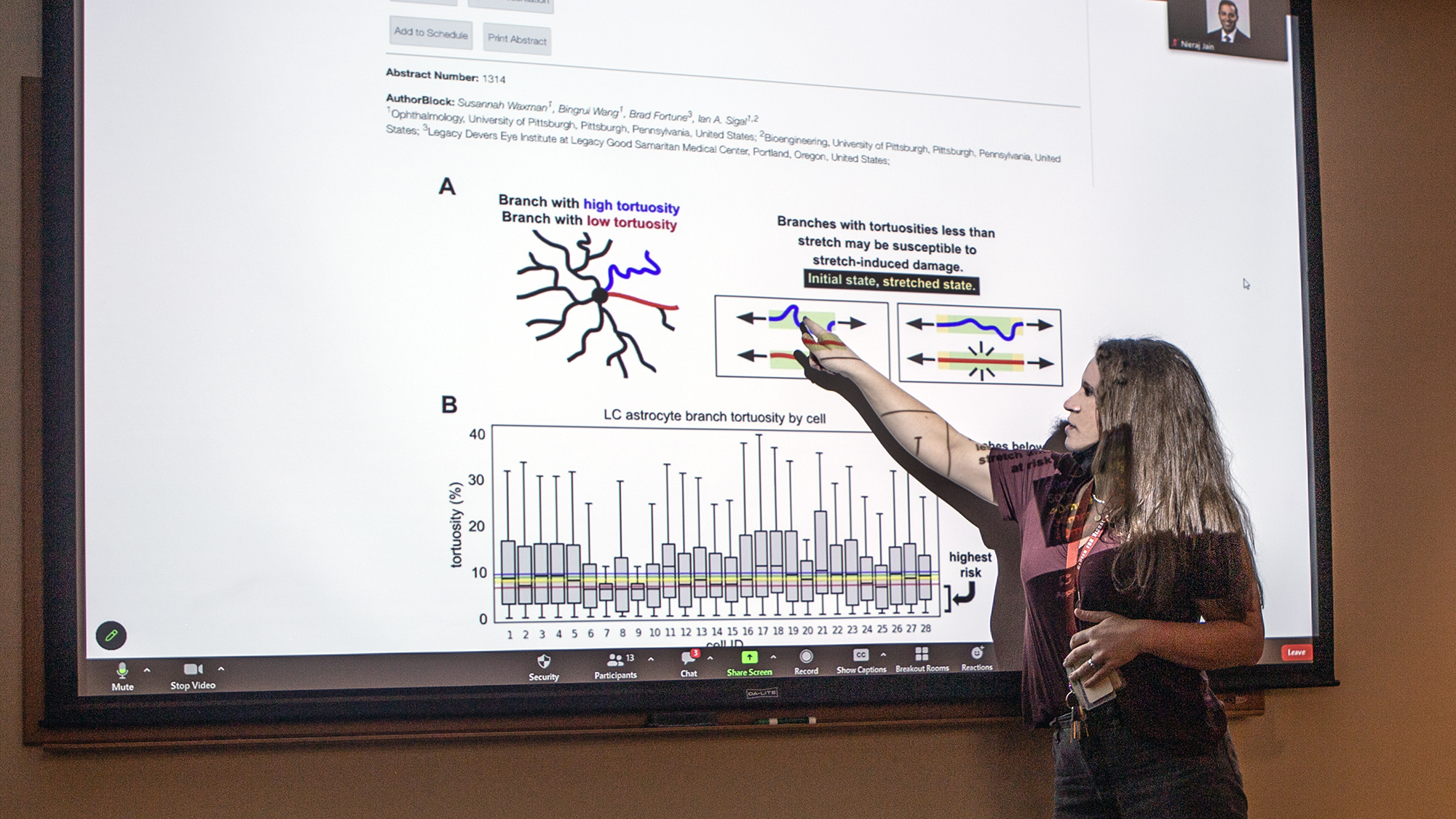As a National Eye Institute (NEI) T32 Vision Training Grant (VTG) program, the Department of Ophthalmology provides intensive basic science training to both pre- and postdoctoral fellows, with the goal of training innovative and productive vision researchers.
Predoctoral training
This graduate program emphasizes collaboration between and among basic scientists, researchers, and clinical faculty from multiple disciplines. Students are mentored through direct participation in laboratory investigations that are actively contributing to national research priorities identified in NEI missions.
Graduate students receive formal training through Emory's Graduate Division of Biological and Biomedical Sciences in the following six areas: immunology and pathology (IMP), biochemistry, cell and development biology (BCDB), genetics and molecular biology (GMB), neuroscience (NS), nutrition and health science (NHS), and molecular and systems pharmacology (MSP).
Graduates of this program can expect to gain a solid understanding of the fundamental mechanisms underlying normal ocular function as well as of diseases, retinal choroidal diseases, cataracts, glaucoma, and disorders of visual processing.
Application requirements for pre-doctoral training
Students who have already been admitted to a program within Emory's Graduate Division of Biological and Biomedical Sciences are eligible for application to this program. In addition, they should have already fulfilled most requirements for admission to Advanced Standing. Thus, the Vision Training Grant Program will support research training that is directly relevant to diseases of the eye.
In addition, the first year of study must meet the following standards
- Demonstrated ability and promise in biomedical research
- Interest in research related to diseases of the eye
- Completion of at least one lab rotation in a vision research lab
- Association with a preceptor of the VTG as thesis advisor
Postdoctoral research
Post-doctoral research and mentorship are offered under the preceptorship of established Emory Eye Center investigators who possess suitable training experience and research support for their labs. Postdoctoral training includes mainly bench research activities, but includes didactic work as necessary.
Although frequent contact with clinicians is encouraged, post-doctoral research projects are not part of clinical or patient treatment activities. They are aimed at pharmacologic, cell biologic, biochemical, neuroscience, immunologic, genetic, informatic, and molecular biology approaches within the multidisciplinary environment of vision research.


